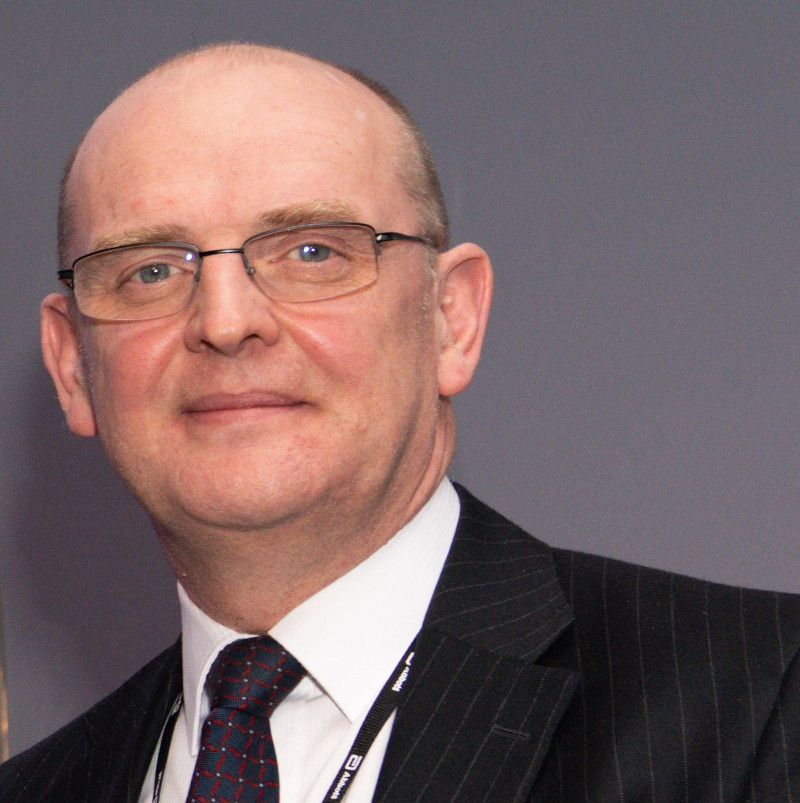A blog from cardiologist, Professor Adrian Banning, on the impact of Covid-19 on our cardiovascular health and the importance of awareness of CVD.
As the world continues to cope with the ongoing Covid-19 pandemic, our heart health has never been more important, particularly as people with cardiovascular disease (CVD) and its risk factors, including diabetes and hypertension, are more vulnerable to severe forms of coronavirus.
However, we can also take the pandemic as an opportunity to make healthier lifestyle choices and reduce our risk of CVD. This World Heart Day, we spoke with Professor Adrian Banning of the Oxford Heart Clinic about public awareness of CVD and what it takes to live a heart healthy life.
Cardiovascular disease is one of the main causes of death and disability in the UK, causing nearly 170,000 deaths each year [1]. Every five minutes someone is admitted to hospital due to a heart attack or has a stroke in the UK, around 50% of which are associated with high blood pressure – the leading risk factor for CVD in Britain.
CVD is particularly dangerous during the Covid-19 pandemic. Recent studies have shown that there is a clear link between coronavirus and those most at risk of CVD – people who are obese or smoke – with overweight people making up 6 in 10 Covid deaths in the UK, and smokers being more likely to contract respiratory diseases generally. The pandemic has also led to people being too afraid to come to hospital, even when suffering with clear signs of a heart attack like chest pain and shortness of breath – the number of people attending A&E in England with symptoms of a possible heart attack dropped by over 50% throughout March [2].
While these figures can seem overwhelmingly negative, the NHS are discovering there is a positive side to everyone spending more time at home right now, with a lot of people are taking steps to improve their health. People are smoking less and exercising more during the pandemic, with more than one million people giving up smoking since the Covid-19 pandemic hit [3] and nearly one million downloads of the popular running app ‘Couch to 5k’ since March [4]. This is a positive sign that as a nation we could move towards collectively better heart health and reduced risk of CVD.
One of the best bits of my job is seeing the amazing transformations of our patients, who we see go from their worst state after a heart attack, to turning their life around and being able to run with their families in the park and live a long happy life. The reality is you do not have to aim to be running marathons, but I would encourage everyone to use lockdown as an opportunity to get in shape and change your habits to reduce your risk factors.
One of the most important first steps to make is to stop smoking. This is the most important thing you can do to reduce your risk of CVD, and something every doctor will strongly recommend. If you continue to smoke after you have already had a heart attack, there is a 50% chance you will die of heart disease [5]. Lockdown is also a great opportunity to find more time to exercise and work towards a healthy weight goal, because being overweight can lead to CVD risk factors like diabetes and high blood pressure.
If you are concerned about your blood pressure, or another risk factor of CVD, you need not be concerned about seeking medical help right now. It is easier than ever to reach your GP electronically and arrange an online consultation. A recent study by PHIN has shown that of over 180 hospitals surveyed, 100% are now offering online consultations for private treatment after the pandemic hit.
It is also vitally important that you still seek medical help if you are experiencing any chest pains or signs of a stroke. You must call an ambulance and get to a hospital as quickly as possible, because the sooner we can treat you, the less likely you are to have future complications. People are trying to do the right thing by staying at home and not overwhelming the NHS, but paramedics would rather be called out than be too late to save someone’s life.
This World Heart Day, I want you to remember: if you smoke you should stop. If you don’t exercise you should. If you are male in your 50s or female in your 60s, and you have a family history of heart disease, it is very sensible to be aware of your blood pressure and cholesterol and regularly monitor it, either at the chemist or at your GP surgery. If you unlucky enough to have any of the symptoms of a heart attack or stroke, then call 999 as quickly as possible, the NHS is here to help you . Finally remain vigilant with your heart health and please follow the Covid-19 guidelines to keep yourself and others safe.
Professor Adrian Banning is a Cardiologist specialising in interventional cardiology and is one of the founder members of the Oxford Private Heart and Lung Centre at Nuffield Health Oxford. You can find his profile here.
